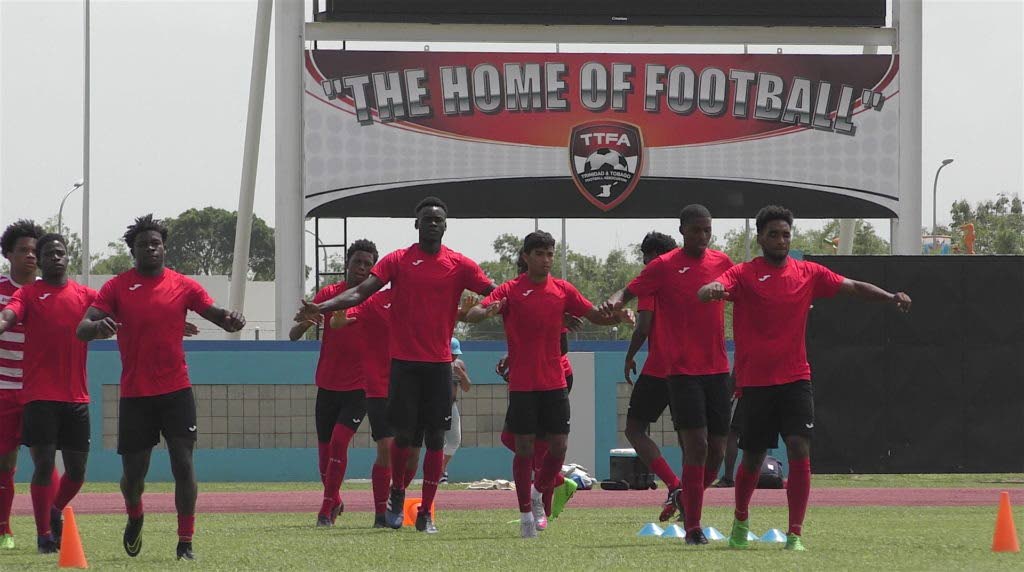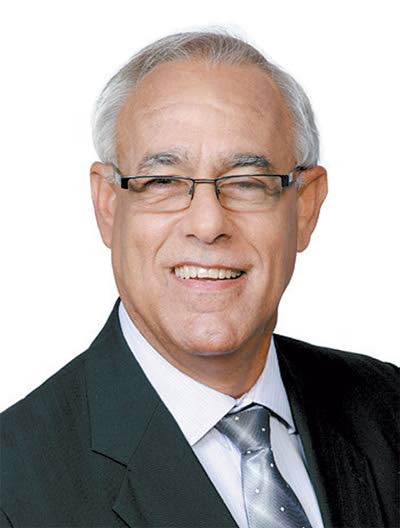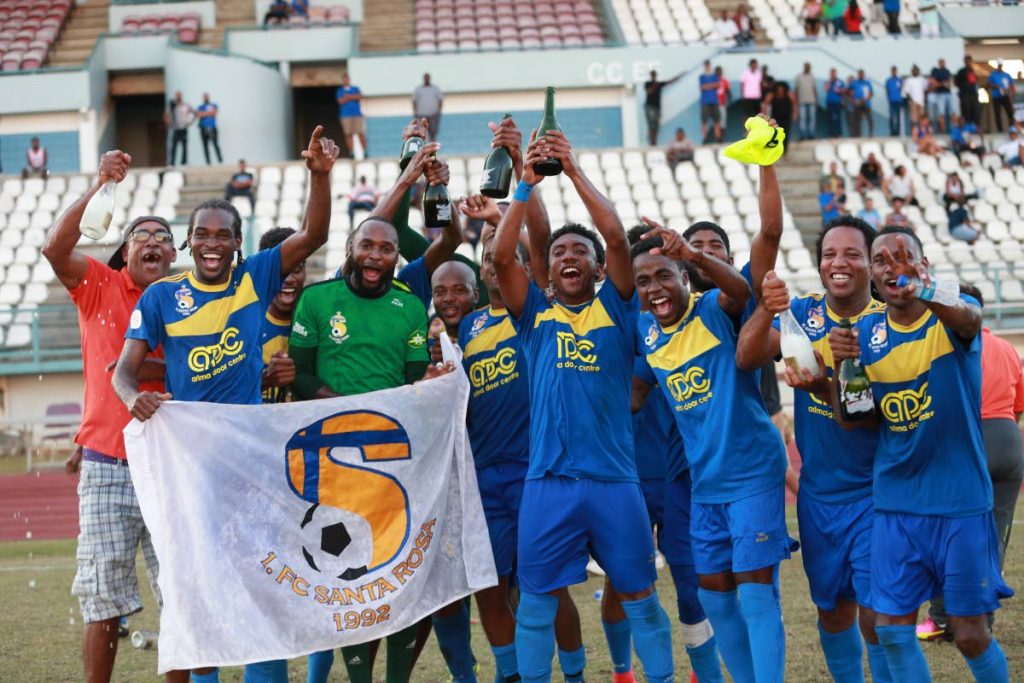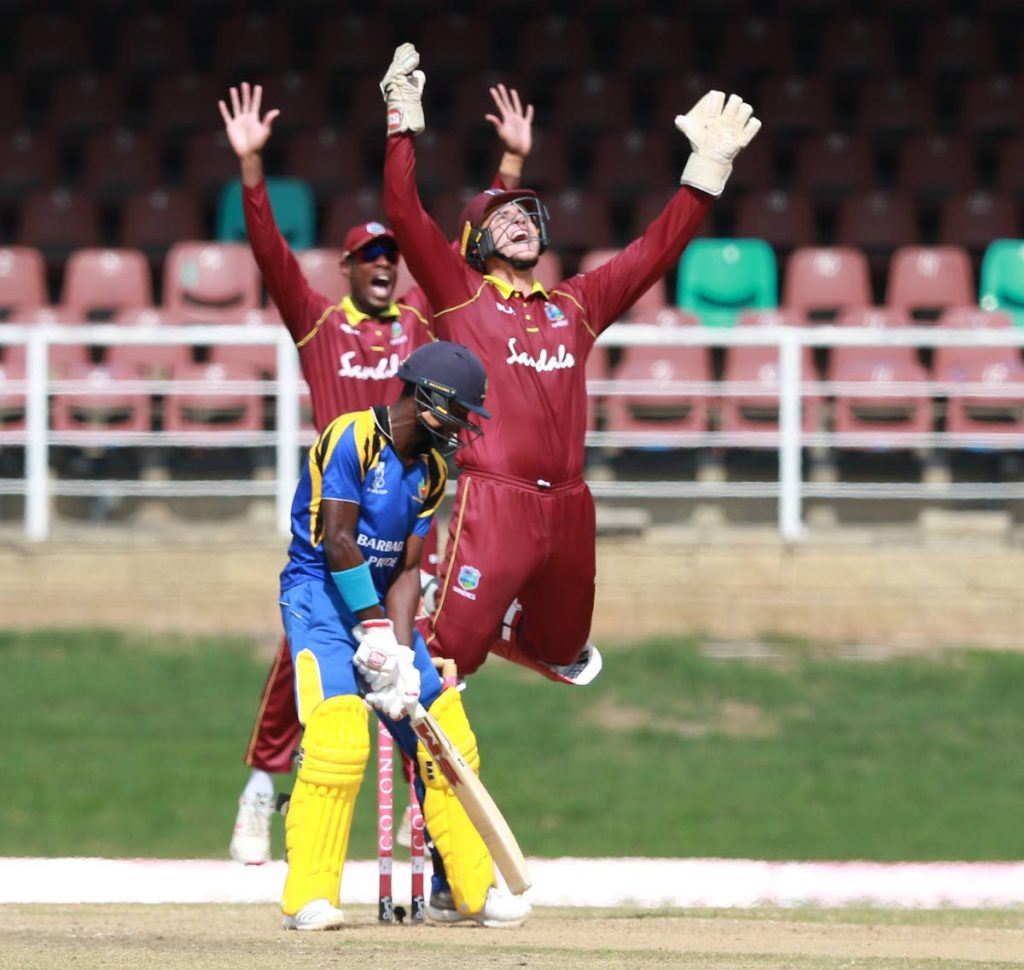Defeating a $114m debt

One hundred million dollars was spent on facilities and infrastructure development for sporting facilities in TT for year ending September 30, 2019.
But, Sport Company of TT (SporTT) chairman Douglas Camacho told Business Day in a recent interview, that the amount is not close to the funds required to properly maintain all of the sporting facilities in the country. SporTT made its audited 2019 financial statements public on January 28.
The state company received most of its money through a $127.9 million government grant, $11 million less than the subvention in 2018. And it recorded a $114 million deficit for 2019.
Included in the expenditure was $60.7 million for infrastructure development, $40.6 million for facility expense, $14.7 million for national governing bodies (NGBs) and sporting initiatives, $11.4 million for salaries and staff benefits and $9.3 million to write off the Life Sport balance.
Camacho, discussing the infrastructure development and facility expense totals, said, "If we spent $60 million, $80 million, probably we really should have spent $200 (million) or $150 million...we are not really doing all the preventative maintenance we ought to. We wait until a problem (arises) and then have to fix it or don't have the money to do the preventative (maintenance)."

The SporTT chairman, giving an example of what should be done in maintaining a stadium, said, "On March 20, we are going to close Larry Gomes (stadium) for a week, do maintenance on all the major things for three days or whatever it takes. We switch off the AC for two or three days, the plumbing, in other words all the equipment, all the mechanical and electrical stuff. We should be doing preventative maintenance on an ongoing basis."
SporTT wants to operate in a more efficient manner, but funds don't allow it. "When something goes (wrong) you don't limp along and let five other things mash up because you are not operating properly, but to do that you have to have the funds in a planned way rather than a reactive way. Right now we basically have to be reactive, we do have a planned maintenance schedule but we can't execute it because we don't have the funds."
In TT, he said, we fix but don’t really maintain. “That is the difference between well-run facilities everywhere in the world and some of ours — we just don't maintain them properly. Not just the sporting (buildings), some of our main buildings, we wait until they mash up rather than fix them to prevent them from mashing up in the first place."
Concerning the $11.4 million spent on salaries and staff benefits, Camacho – an insurance executive for 30 years, and currently a director of the Unit Trust Corporation – said bluntly, “I think quite frankly we are probably understaffed for what is being asked of the Sports Company."
Sport and culture intertwined
A number of sporting venues in the country, especially Hasely Crawford Stadium, Queen's Park Oval and Brian Lara Cricket Academy are used for Carnival fetes and other cultural events. These events earn a lot of money, but SporTT does not benefit directly.
"Whatever fetes they have there the funds will come in and go directly to the Central Government via the Consolidated Fund."
People have questioned why parties, fetes and concerts are held at sporting venues as they could cause damage.
Camacho, however, noted that it is people who have no regard for their surroundings that primarily destroys facilities. "I will tell you what mashes it up when people go to watch a football game and they put their foot up on the chair in front...that has nothing to do with what you rent it for (like parties), that is just the behaviour of the people and the people's behaviour has to change."

Camacho said a number of sporting facilities in the world, including the famous Wembley Stadium in London, where England won their only World Cup tournament in 1966, hosts events outside of sports. Some of the top musical acts in the world like Beyoncé, Eminem, Taylor Swift and the Spice Girls have had concerts at Wembley Stadium.
"No stadium could survive just on sport. All stadia derive additional revenue from other activity, so that is normal. So it’s not whether people use it, it is how you use it and the rules you put in place."
Camacho outlined the process for booking a stadium for a performance.
He gave Machel Monday, the multi-artiste Carnival showcase produced by soca star Machel Montano, as an example.
"Machel would write (SporTT) and ask for permission...and say for that date he would need two weeks before to start putting up the stage and all the things that go with it so he will need access to certain parts. We say, 'Okay, we will give you access for this area from here to here.' We give him access to the whole thing for maybe two or three days before because while he is doing his thing other activities could take place in the stadium."
Measures are also put in place to avoid damage, for example the football field was covered at the Hasely Crawford Stadium for Machel Monday. Montano said after a decade this year was his last concert in this format.

One challenge SportTT has had to deal with was the lingering after-effect of the Life Sport Programme. Life Sport was a national scandal that marred the company’s reputation because of allegations of fraud, theft, and claims that the programme, which was supposed to empower at-risk youths away from crime through sport, was linked to people involved in criminal activity. Five and a half years ago, then prime minister Kamla Persad-Bissessar ended the $400 million programme.
Speaking about the $9.3 million to clear the Life Sport balance, Camacho said, "It (the debt) has been around a long time and the write-off is because the probability of collecting on the debt is remote at best...that is written off, that is no longer a debt, that is gone."
Taking Team TTO to Tokyo
Where Life Sport is the past, SporTT's future is in building a platform for TT to develop world-class athletes, such as Olympians.
Preparing sporting teams for world meets, such as the 2020 Tokyo Olympic Games that starts in July, is an expensive operation especially for huge teams, such as the national track and field team. For example, when athletes attend the Olympics Games, accommodation, flights, meals and training facilities all add to the expense.
In his report, that was part of the audited financial statement, Camacho said preparing athletes for the Olympic Games is a priority. "SporTT has experienced a difficult and challenging period, but since being appointed chairman on July 4, 2018, the board has continued to focus on rebuilding discipline and good corporate governance to redefine how we operate and do business. We have met with each of the national governing bodies under our purview, ensuring that there is a clear understanding on requirements to be met so that requests for funding can be processed. Our present target for achievement has been made very clear – Tokyo 2020 Olympic Games."
SportTT's allocation for national governing bodies and sporting initiatives increased from $9.8 million to $14.7 million from 2018 to 2019.
Camacho said Government has been trying to ensure that the national athletes are taken care of.
"The Government of TT had indicated since 2018 that its focus would be to assist national athletes and teams aspiring to get to the Olympic Games as a priority and to be honest, as a matter of fact, they have honoured that commitment for the last year and a half."
However, even with government assistance, SporTT's vision is hamstrung by financial bureaucracy. And so, reducing the $114 million deficit is not something SporTT has control over. Camacho said getting a loan is one option to get rid of the huge debt.
"Sports Company does not have the right in law to raise revenue and keep it for ourself, so we can't do anything. The law does not allow for us to collect cash. Any money received by the Sports Company goes to the Central Government, the consolidated fund. There is not much we can do."
SporTT 2019 highlights
Subvention – $127.9m, $11m less than 2018.
Income – $128.2m
Expenditure – $164.3m: infrastructure development – $60.7m; facilities – $14.7m: salaries and staff benefits – $11.4 m; LifeSport write-off $9.3 m

Comments
"Defeating a $114m debt"